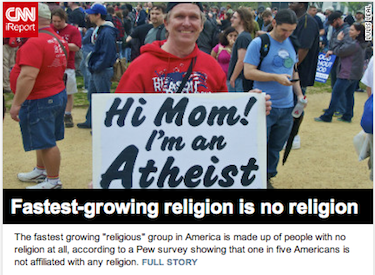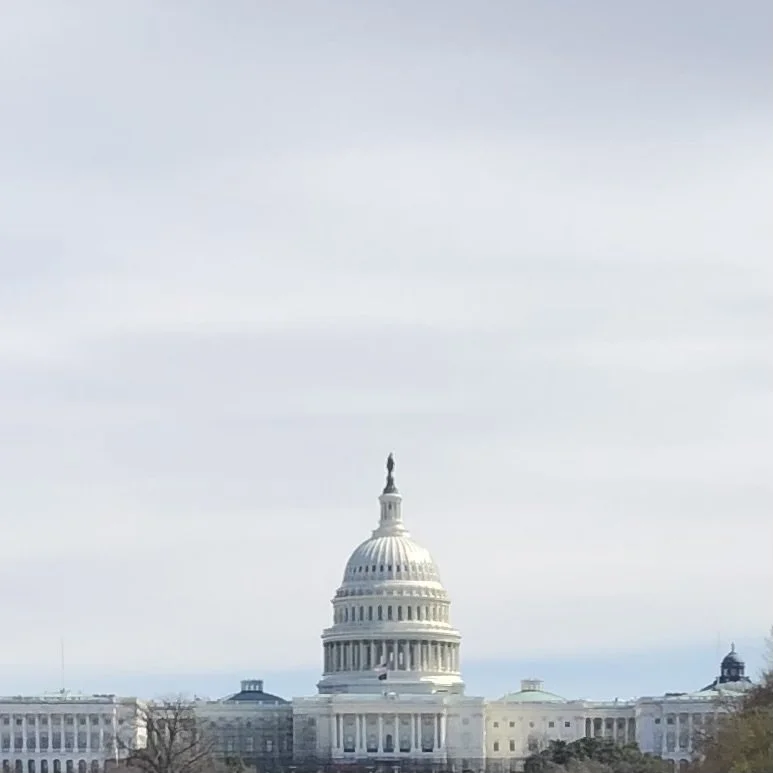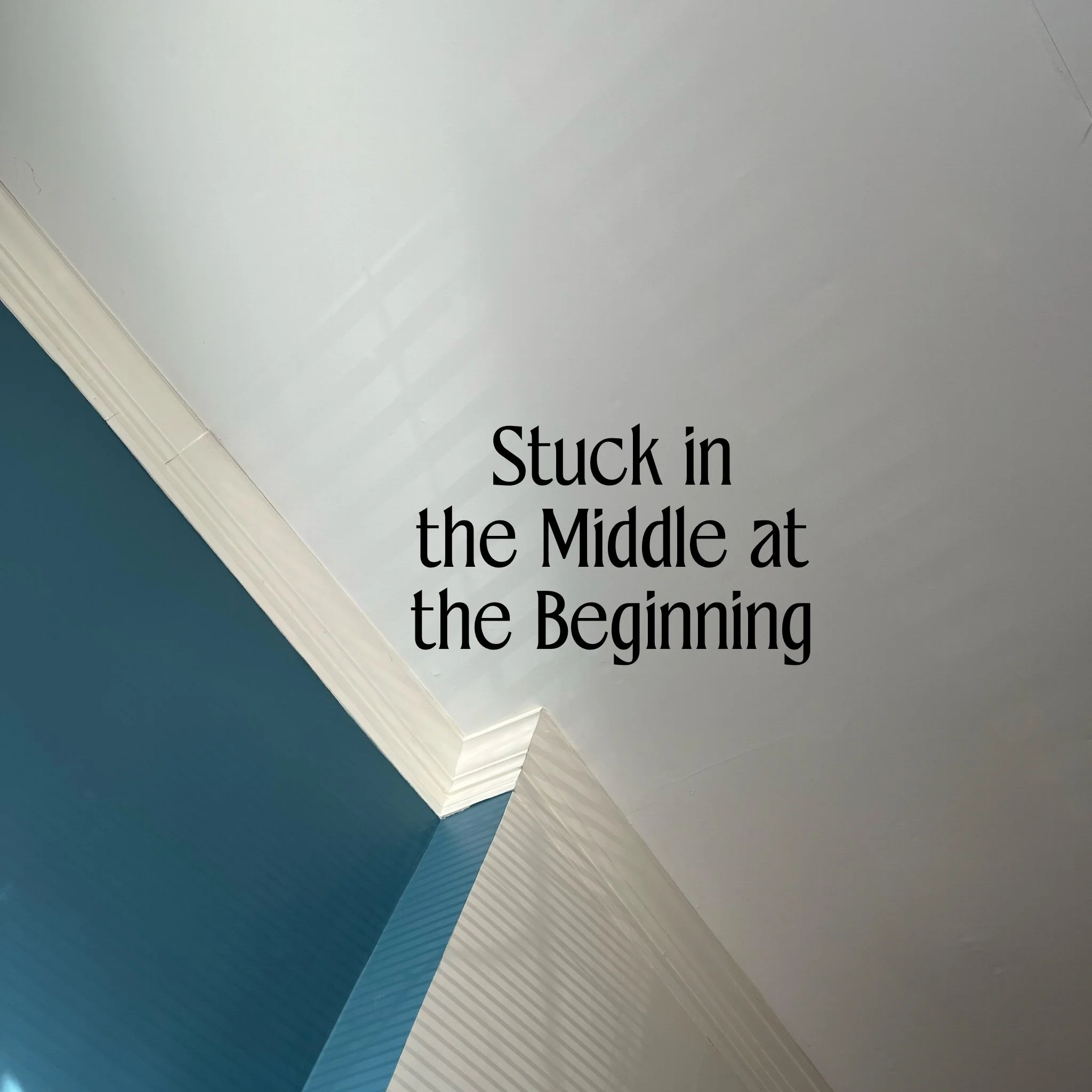 I woke up this morning a bit groggy from some late night school work and read about a survey that has apparently caused somewhat of a stir. The article I read reported on a Pew survey finding that “no religion” is the fastest growing religious group in the United States. One in five don’t claim any certain religion. A few brief thoughts:
I woke up this morning a bit groggy from some late night school work and read about a survey that has apparently caused somewhat of a stir. The article I read reported on a Pew survey finding that “no religion” is the fastest growing religious group in the United States. One in five don’t claim any certain religion. A few brief thoughts:
1. The pictures (the one to the right and another of a person holding a sign reading “I’m an Atheist, G————!”) that originally accompanied the article are a bit misleading. It gave off the impression that 1 in 5 people in America are now atheists. Not true. The article states that of the 33 million that are not religiously affiliated, 13 million identify as agnostic or atheist. That is an statistically significant distinction. CNN now accompanies the article with an actually quite serene and beautiful picture of an empty sanctuary. But when I saw those pictures, I knew it was going to trigger a response from people, especially Christians. Of course, that was what CNN wanted to get people click on the article and talk.
2. John Green, a senior research advisor at Pew makes the following note about a portion of these religiously unaffiliated people:
In the past, we would describe those people as nominally affiliated. They might say, ‘I am Catholic; I am a Baptist,’ but they never went” to services, Green says of this last group. “Now, they feel a lot more comfortable just saying, ‘You know, I am really nothing.’
What that means for a certain segment is not so much that people are less religious, but they are more honest about their faith or lack thereof. I would argue that is actually a good thing. I would much rather a nominal Christian be honest and say, “You know what? I’m not really anything.” than go with the flow and artificially bolster numbers. I would argue that honesty about your religious identity is the healthiest path forward no matter your affiliation.
3. Numbers don’t mean a hill of beans. Okay, they mean something, but they do not mean nearly as much as we think. We have a habit in America of equating large numbers with God’s blessing and diminishing numbers with God’s presence being absent. That is interesting because God’s presence in scripture is sometimes most powerful in small numerical gatherings: a one-on-one on Mt. Sinai, with a group of 12 by the Sea of Galilee. Numbers tell parts of the story. They by no means dictate the direction of the story.
4. Christians should realize that America is not, nor has it ever been a Christian nation. We also have to realize the ways in which we have contributed to the increase in men and women that claim no religion. Sure some of it is societal, but much of it can also be pinned on how the church has acted and behaved in our culture. The fact is—and I include myself in this—we do not live as Jesus lived and often turn our faith into a bit of supernatural self-help. If we take living like Jesus out of the equation of Christianity then we should not be surprised to see people reject that kind of “faith.”
Those are my two cents. On the whole, I hope this survey provokes some positive and challenging discussion for all of us in churches in the United States.







